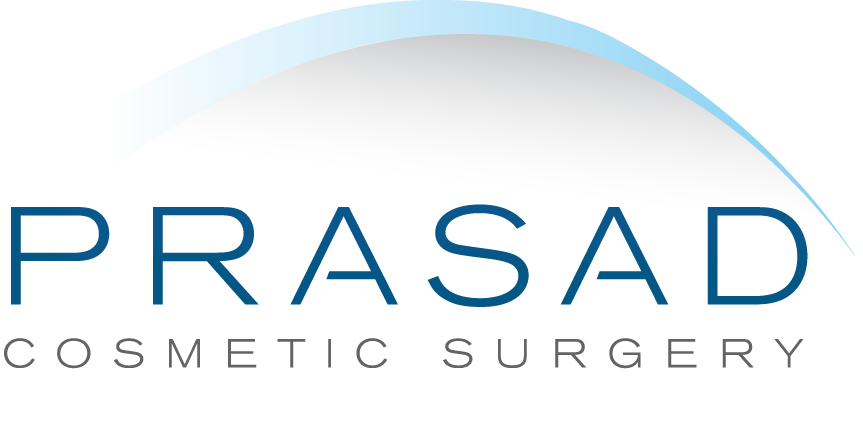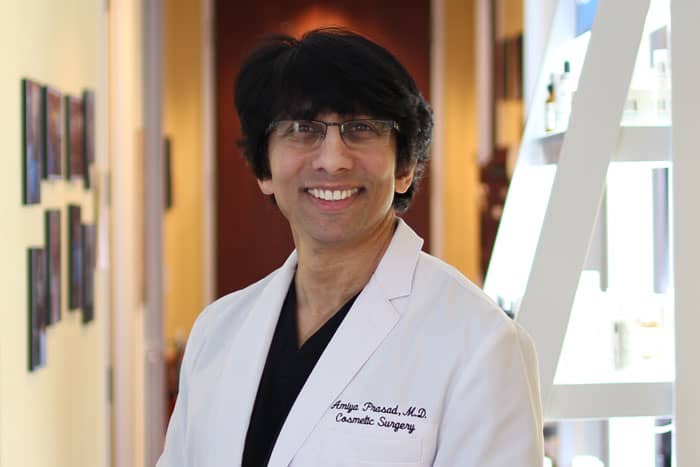Menopause can be a challenging time for women. While dealing with changes of the body, and changes in hormone levels, thinning hair, and slowed hair growth add to this challenging time in a woman’s life. Female pattern hair loss affects about 30% of women under the age of 50, but this number jumps to 50% of women over age 50. I’ll discuss how women facing hair loss due to menopause, as well as female pattern hair loss can do to increase their hair thickness and growth.
How Menopause Impact Hair Growth
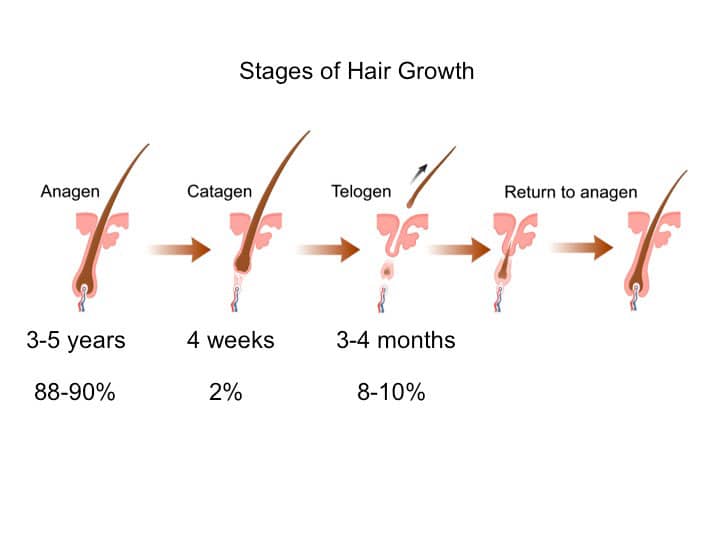
Estrogen makes the hair growth cycles longer, so producing less estrogen has an immediate impact on hair growth. Estrogen production can also decline if someone has her ovaries removed with a hysterectomy for medical conditions like heavy periods, ovarian cancer, or damaged ovaries from treatments like chemotherapy.
Female pattern hair loss can occur at the same time as perimenopause, or menopause, but it also affects women who are still too young to be affected by a natural decrease of estrogen. While the exact cause of female pattern hair loss is not yet known, it manifests as diffuse thinning of hair throughout the scalp. It can also be seen where the hair part widens, forming a Christmas tree pattern.
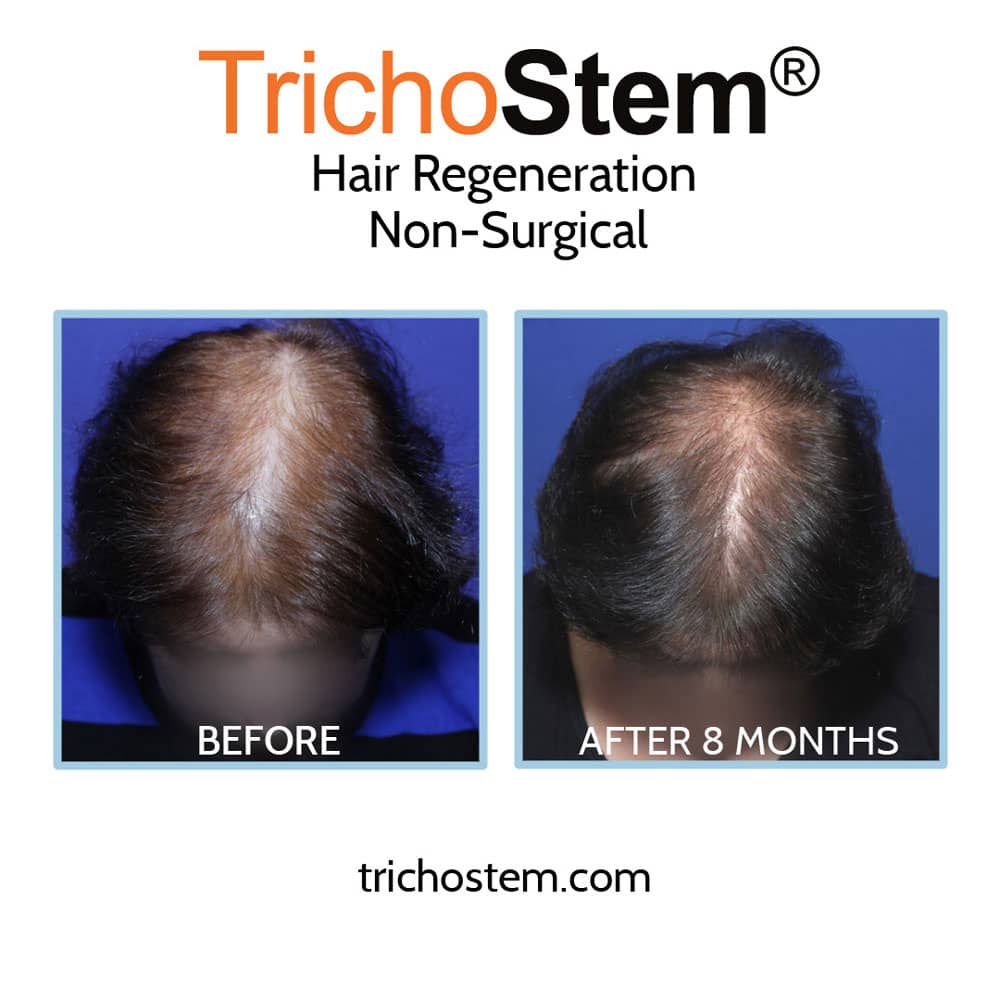
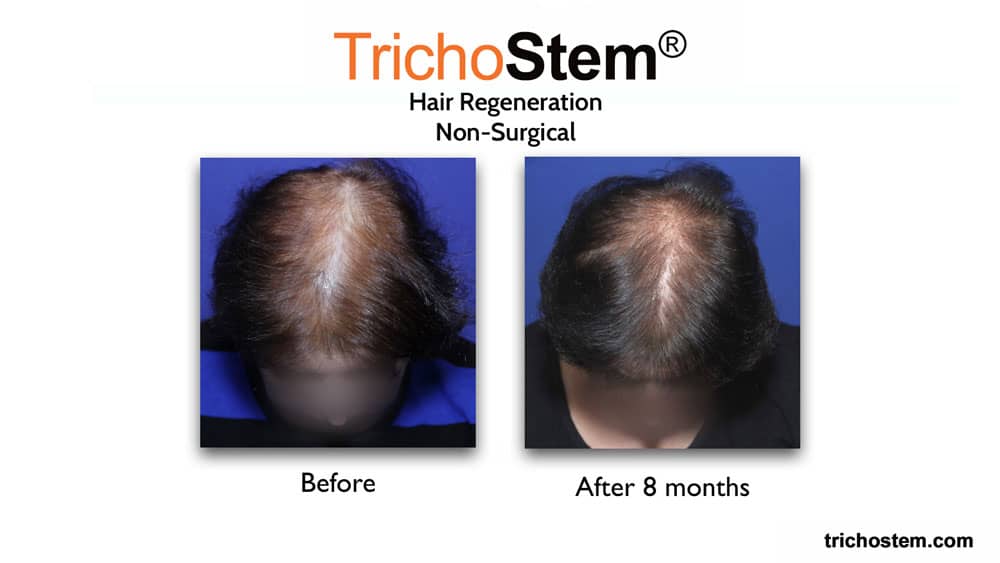
As stated earlier, about 30% of women over age 30 do experience female pattern hair loss. Women who have female pattern hair loss prior to a decrease in estrogen production can compound their hair loss problem, as hair that was already thinning can become more rapid as they get closer to menopause.
Common Products for Menopausal Hair loss
Hair loss products for women are limited. Minoxidil for women has limited impact on hair loss. Minoxidil appears to delay the hair shedding cycle, and extends the growth cycle, but it doesn’t affect hair thickness. If minoxidil use is stopped, hair delayed from shedding can have a sudden and severe shed, leaving users back to where they started before using the topical drug. The effects of minoxidil also decrease with time, so it’s not a drug that is practical or effective for long-term use.
While some doctors prescribe the testosterone-blocking drug spironolactone for pattern hair loss treatment, I don’t find that testosterone in women has a significant impact on pattern hair loss, so I don’t prescribe the drug. A few doctors prescribe the male hair loss drug finasteride, which is a DHT-blocker, or dihydrotestosterone, but DHT is not significantly present in women, so I also don’t prescribe finasteride for women.
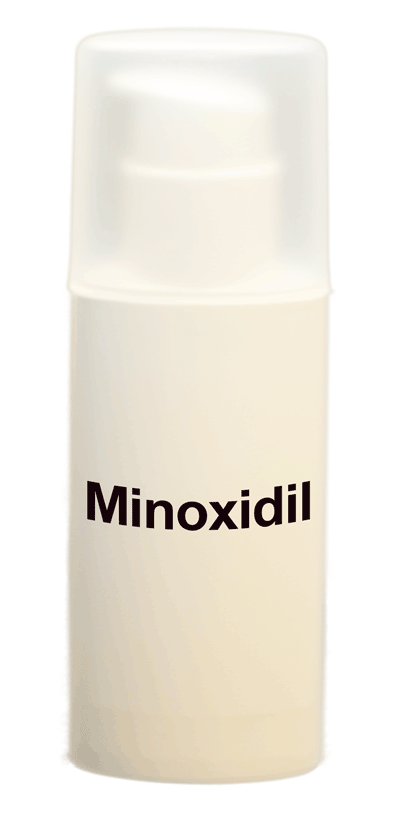
Female Pattern Hair loss Treatment
For our patients with female pattern hair loss, I administer the treatment I developed, and started in 2011 called TrichoStem Hair Regeneration. This is a customized scalp injection treatment that uses platelet-rich plasma (PRP) which is derived from a patient’s own blood that contains wound healing and growth factors used for healing injuries like cuts.
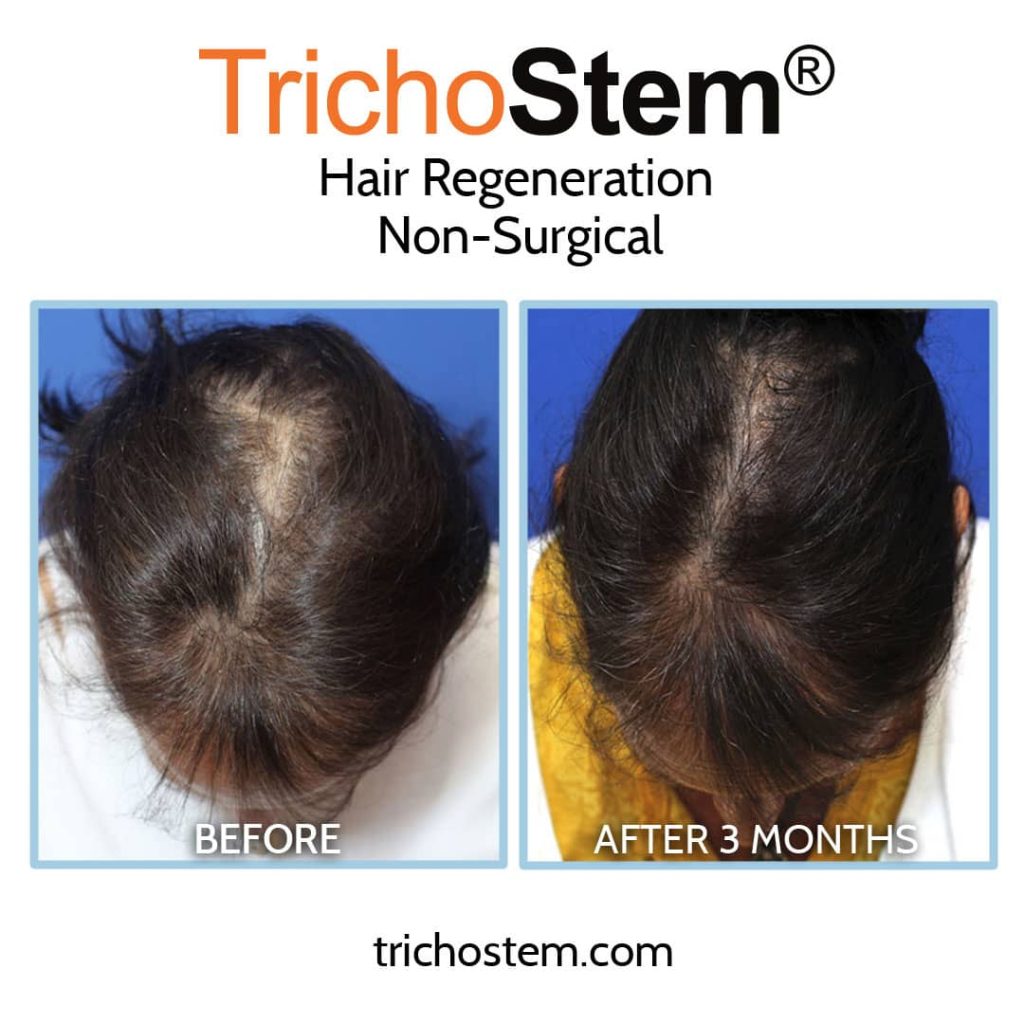
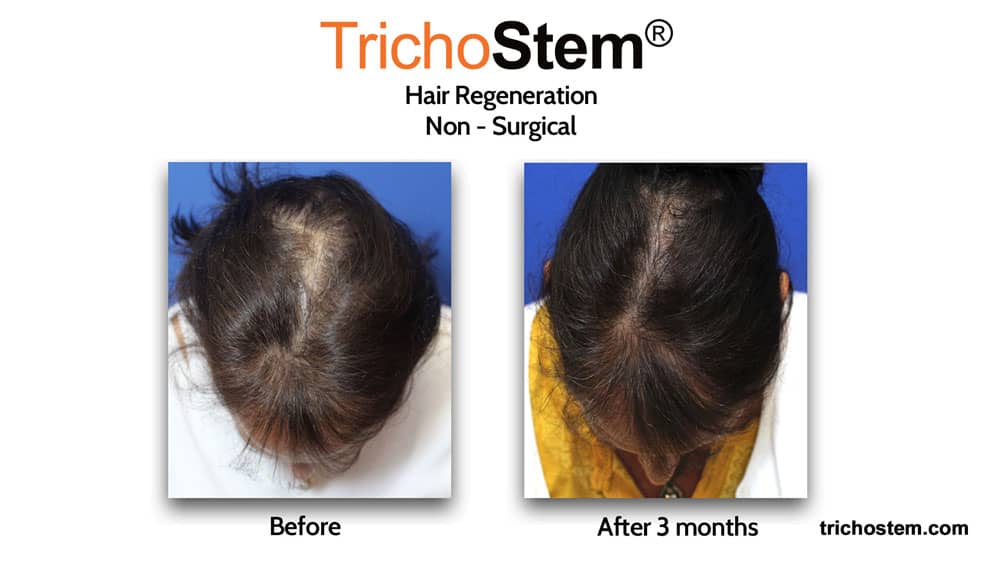
The main ingredient of the treatment is extracellular matrix by ACell, a wound healing material I originally used for expediting the healing of surgical incisions like facelift incisions. When I first used the extracellular matrix to help heal hair transplant grafts to improve results, as well as health the hair graft donor area at the back of the head. I noticed about a year later that native hair that was not transplanted became thicker.
Since 2011, I have been administering this treatment to male and female pattern hair loss patients, with an over 99% success rate in thickening thinning hair, and stimulating growth from hair follicles that are still viable, but not currently growing hair. Our TrichoStem Hair Regeneration treatment can increase visible scalp coverage, and greater hair density, without the need of minoxidil or spironolactone.
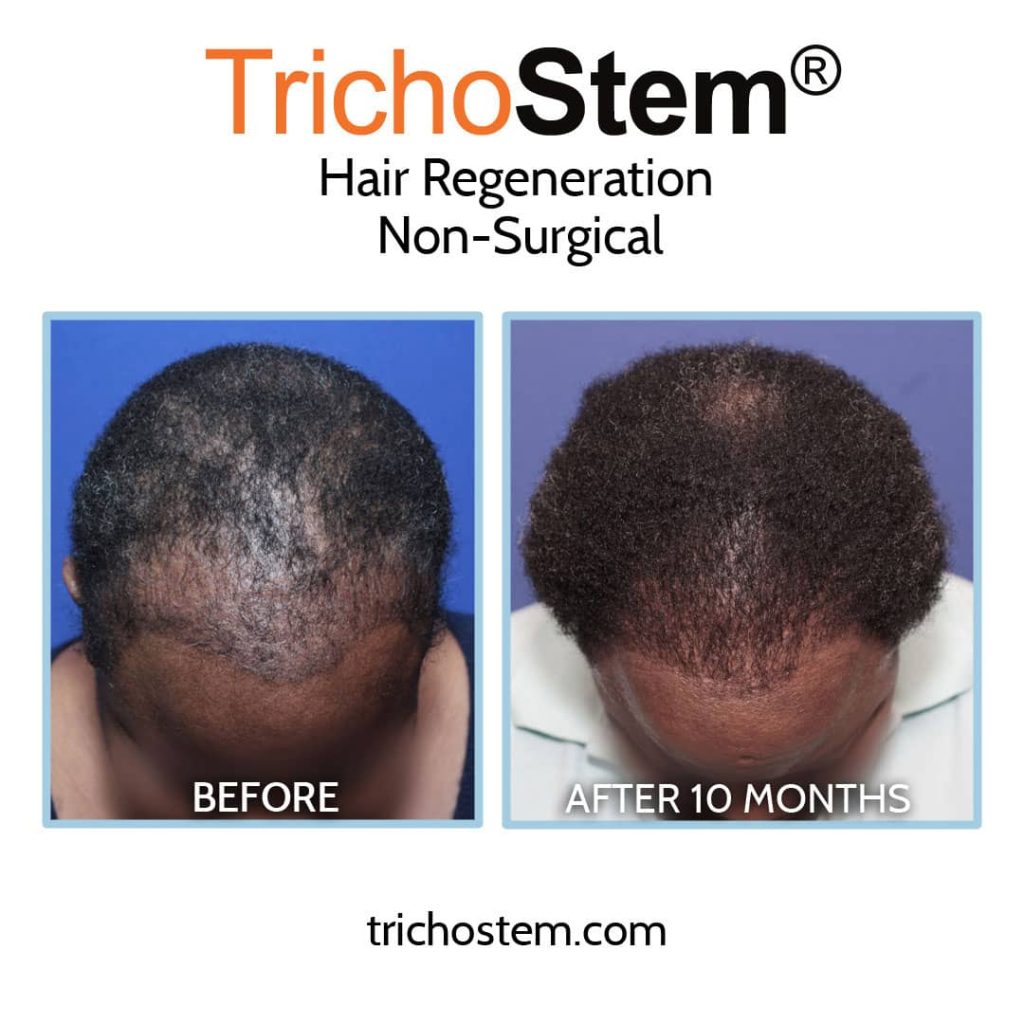
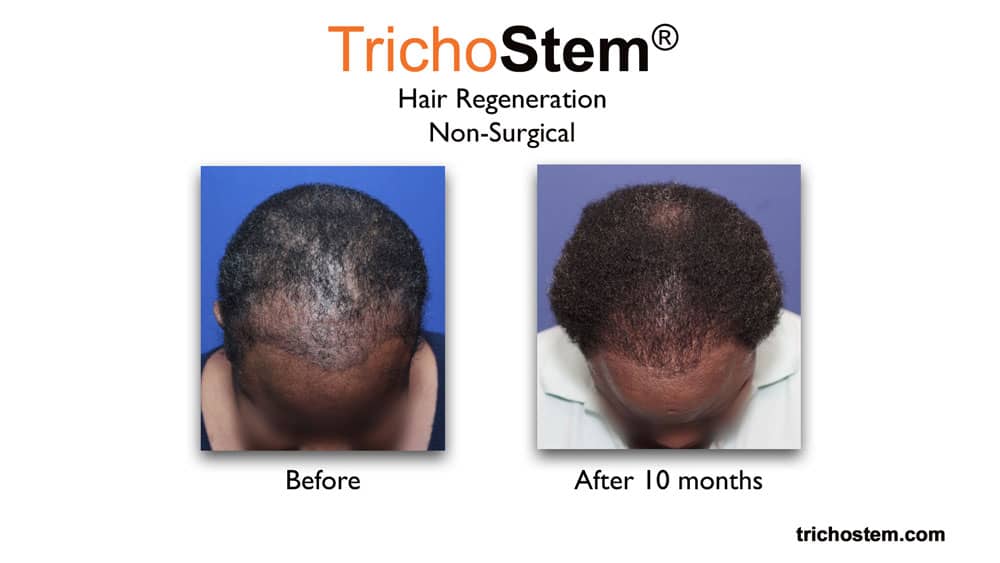
What Helps Hair Loss/Hair Thinning During Menopause
For women with hair thinning or hair loss due to menopause, who may also have concurrent female pattern hair loss, we have also seen successful thicker hair growth with our treatment. While TrichoStem Hair Regeneration does not address lower estrogen levels directly, it does seem to create the environment for thicker hair growth.
The wound healing mechanism of extracellular matrix and platelet-rich plasma appears to renew a healthier hair growth cycle, so thinning hair can grow back thicker, and hair follicles that are weak and dormant are renewed to grow hair again. However, the treatment cannot revive hair follicles that have already miniaturized and died. Generally, hair follicles that have not grown hair for less than 5 years may still be dormant, but hair follicles that have not grown hair for more than 5 years are likely completely miniaturized.
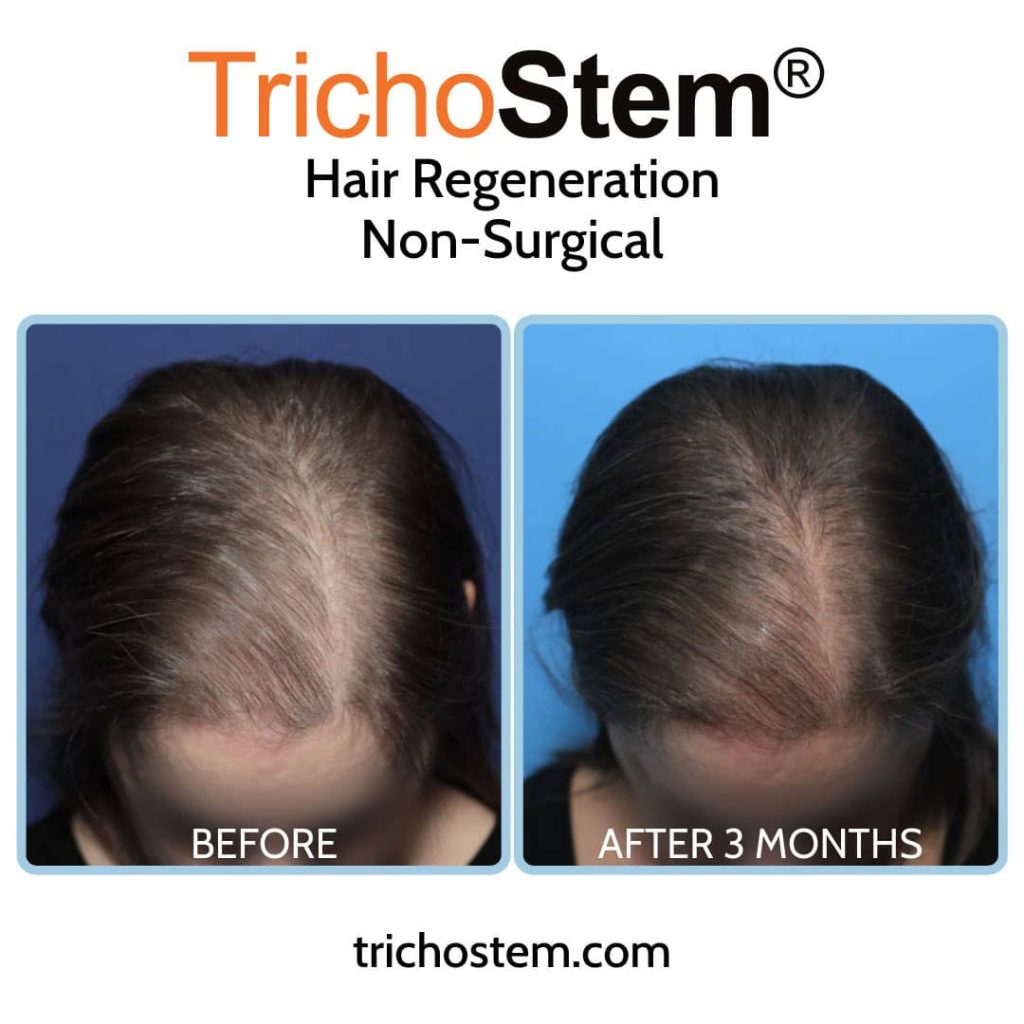
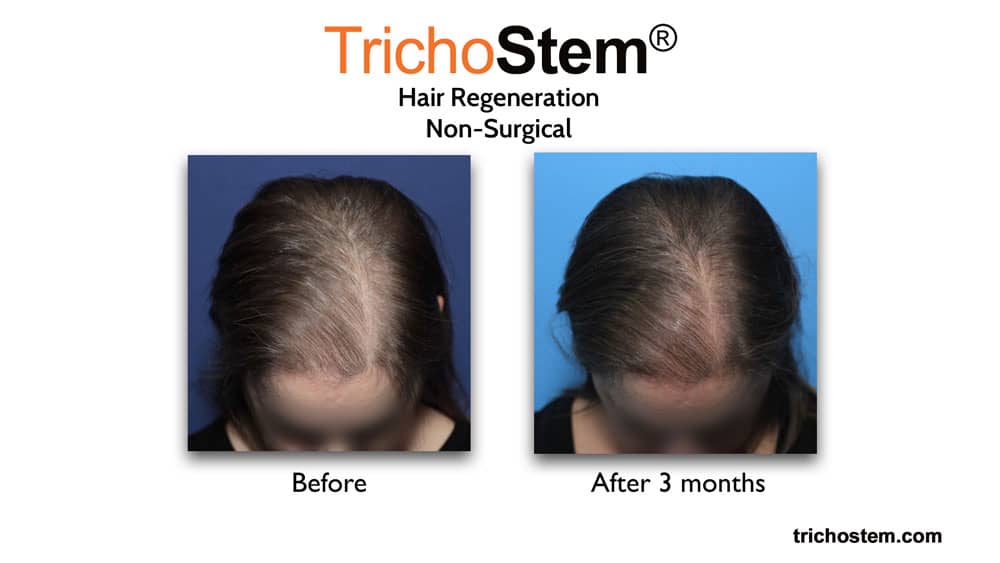
How to Manage Hormonal Hair Loss
Hair Loss Due to Menopause Treatment
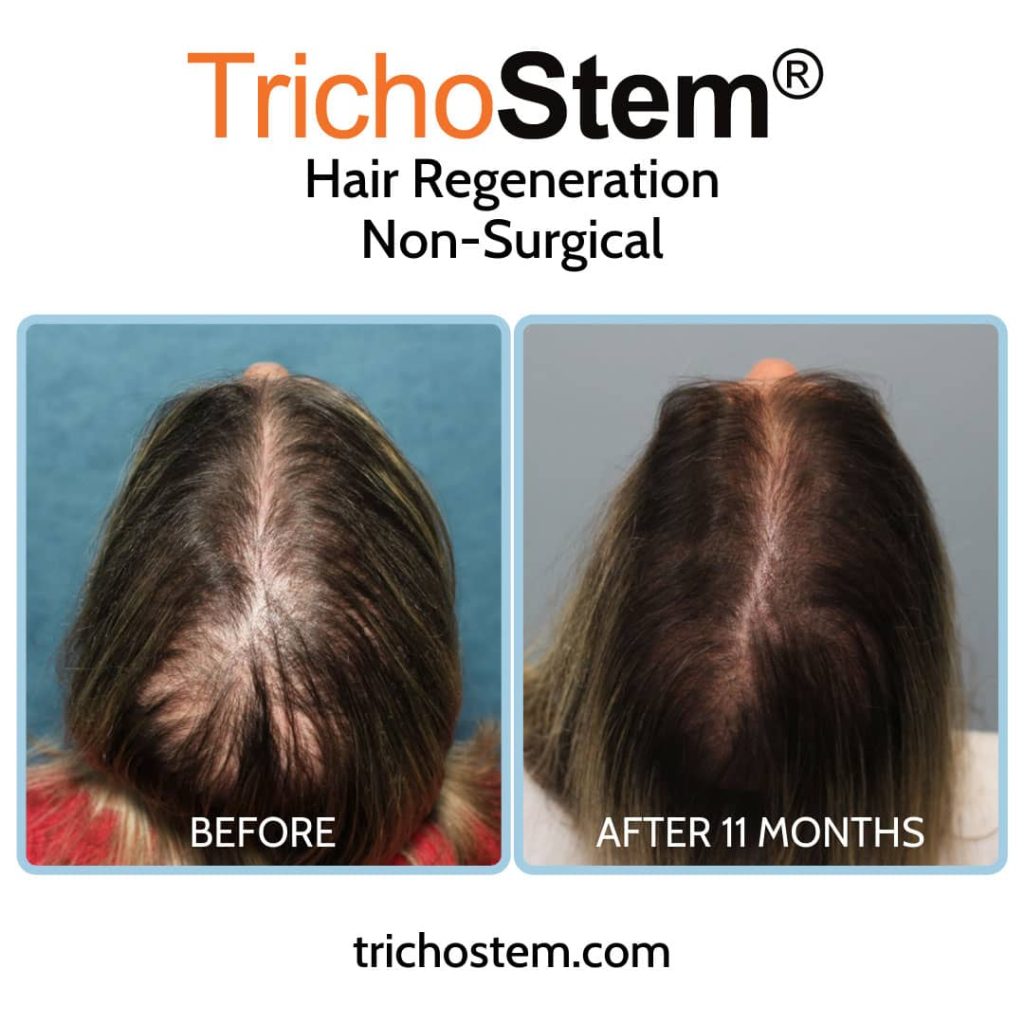
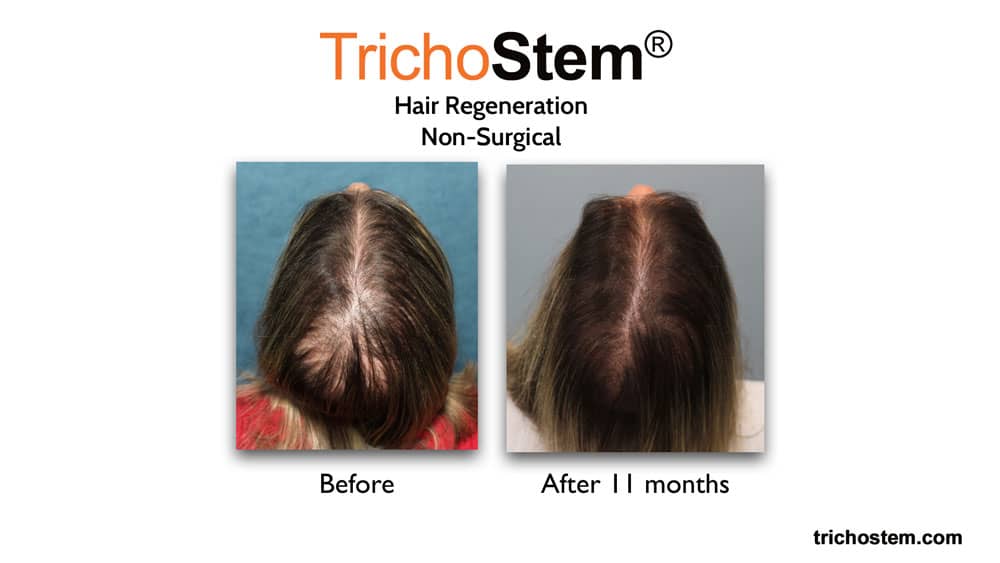
Female Pattern Hair Loss Treatment in NYC, Long Island New York, and Virginia
Dr. Amiya Prasad is a Board-certified cosmetic surgeon and Fellowship-trained oculofacial plastic and reconstructive surgeon. He’s been in practice in New York City and Long Island for over 25 years. Dr. Prasad had been performing hair transplant surgery since he first started his practice. He’s also the founder of TrichoStem Hair Regeneration Centers, which uses non-surgical technology for hair loss treatment that he first discovered when trying to improve healing of hair grafts after hair transplant surgery.
Since 2011, Dr. Prasad has been administering TrichoStem Hair Regeneration as a treatment for men and women suffering from pattern hair loss, including women over 50 who concurrently have menopause-related hair loss. For over 10 years, the TrichoStem Hair Regeneration treatment has achieved an over 99% success rate in increasing visible scalp coverage in men and women with pattern hair loss. To schedule a consultation, fill-up the contact form below, or you may call any of our offices at (212) 265-8877 for Manhattan, New York City; (516) 742-4636 in Garden City, Long Island; or (703) 356-1336 in Vienna, Virginia.
